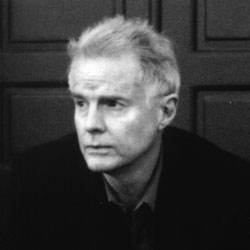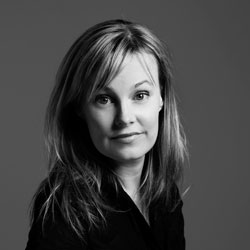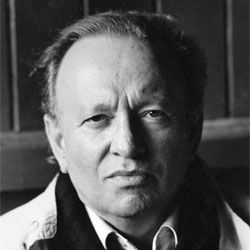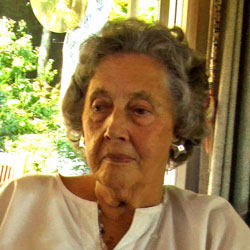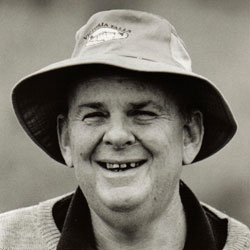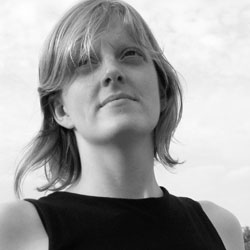I’m bouncing across the Scottish heath in a rented Morris Minor
and listening to an interview with Rat Scabies, drummer
of the first punk band, The Damned, and Mr. Scabies,
who’s probably 50 or so and living comfortably on royalties,
is as recalcitrant as ever, as full of despair and self-loathing,
but the interviewer won’t have it, and he keeps calling him “Rattie,”
saying, “Ah, Rattie, it’s all a bit of a put-on, isn’t it?”
and “Ah, you’re just pulling the old leg now, aren’t you, Rattie?”
to which Mr. Scabies keeps saying things like
“We’re fooked, ya daft prat. Oh, yeah, absolutely – fooked!”
Funny old Rattie – he believed in nothing, which is something.
If it weren’t for summat, there’d be naught, as they say
in that part of the world. I wonder if his dad wasn’t a bit of a bastard,
didn’t drink himself to death, say, as opposed to a dad like mine,
who, though also dead now, was as nice as he could be when he was alive.
A month before, I’d been in Florence and walked by the casa di cura where
my son Will was born 27 years ago, though it’s not a hospital
now but a home for the old nuns of Le Suore Minime del Sacra Cuore
who helped to deliver and bathe and care for him when he was just
a few minutes old, and when I look over the gate, I see three
of these holy sisters sitting in the garden there, and I wave at them,
and they wave back, and I wonder if they were on duty
when Will was born, these women who have had no sex at all,
probably not even very much candy, yet who believe in something
that may be nothing, after all, though I love them for giving me my boy.
They’re dozing and talking, these mystical brides of Christ,
and thinking about their Husband, and it looks to me
as though they’re having their version of the sacra conversazione,
a favorite subject of Renaissance artists in which people who care
for one another are painted chatting together about noble things,
and I’m wondering if, as I walk by later when the shadows are long,
their white faces will be like stars against their black habits,
the three of them a constellation about to rise into the vault
that arches over Tuscany, the fires there now twinkling,
now steadfast in the chambered heart of the sky.

